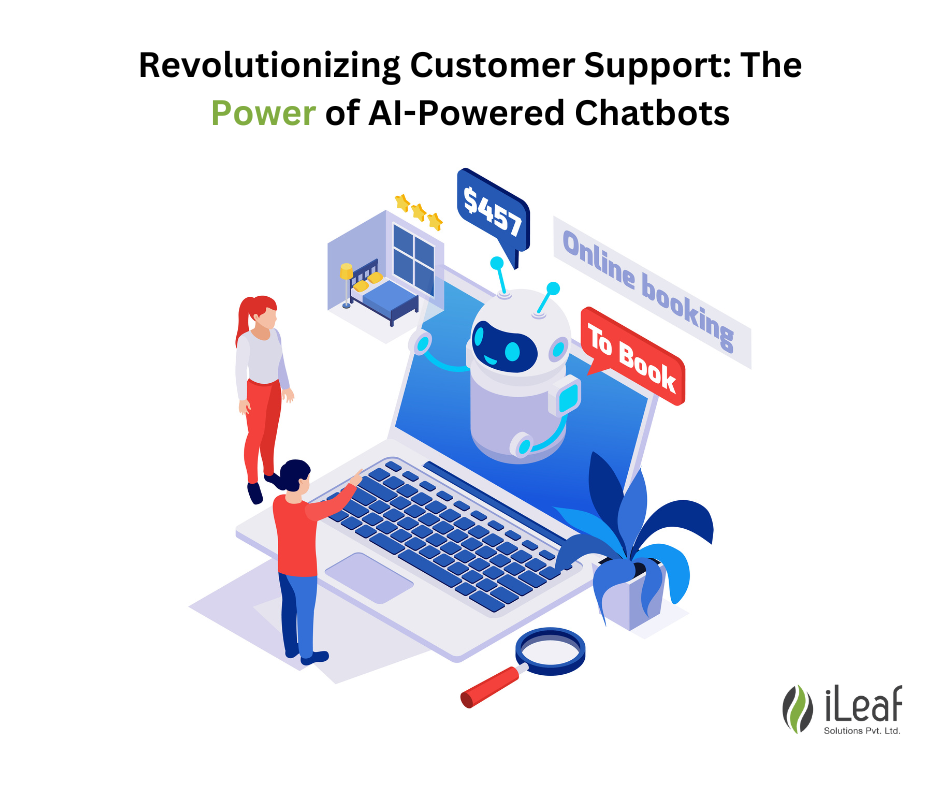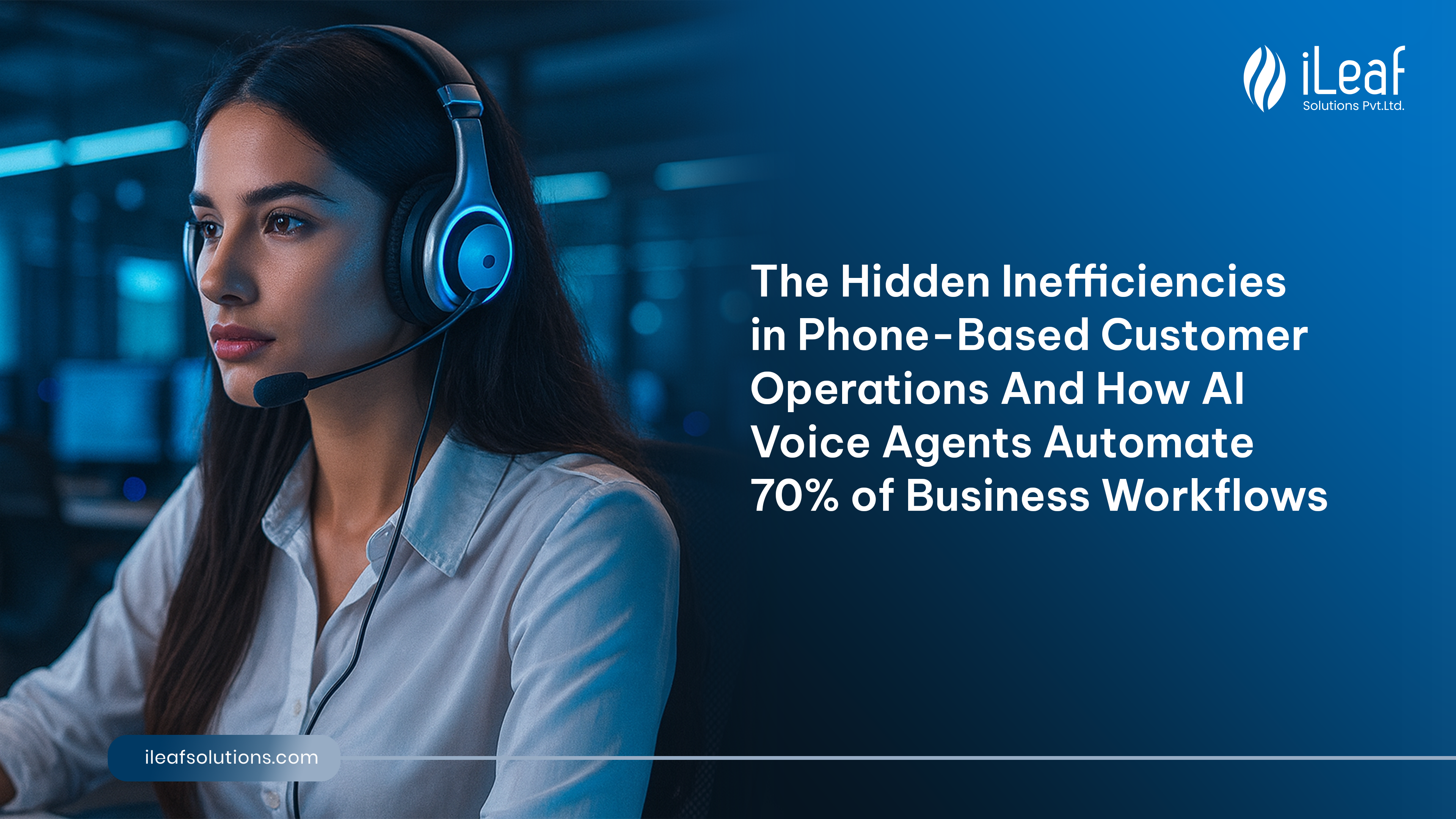Revolutionizing Customer Support: The Power of AI-Powered Chatbots

In today's fast-paced digital world, businesses are constantly looking for innovative ways to enhance customer support and streamline communication. One such game-changing innovation is the rise of AI-powered chatbots. These intelligent virtual assistants have revolutionized customer support by providing instant and personalized assistance round the clock. With their ability to understand natural language and context, chatbots can effectively handle customer queries, resolve issues, and even recommend products or services. Gone are the days of long wait times and repetitive interactions; chatbots offer real-time solutions, increasing customer satisfaction and loyalty. Moreover, AI-powered chatbots continuously learn and improve their responses, ensuring a seamless and engaging user experience. Join us as we explore the incredible power of AI-powered chatbots in revolutionizing customer support and paving the way for a more efficient and customer-centric future.
Pros of Using Ai Chatbots.
AI-powered chatbots bring a multitude of benefits to businesses seeking to enhance their customer support services. Firstly, chatbots provide instant responses, eliminating the need for customers to wait in long queues or navigate complicated IVR systems. With chatbots, customers can receive immediate assistance, improving their overall experience and reducing frustration.
Furthermore, AI-powered chatbots are available 24/7, ensuring round-the-clock support for customers in different time zones or those who prefer to seek assistance at unconventional hours. This accessibility not only enhances customer satisfaction but also helps businesses cater to a global audience and expand their reach.
Another key benefit of AI-powered chatbots is their ability to handle multiple queries simultaneously. Unlike human agents who may be limited by their capacity to handle only one conversation at a time, chatbots can engage in multiple conversations simultaneously without compromising on the quality of their responses. This scalability allows businesses to efficiently manage high volumes of customer inquiries and ensures that no query goes unanswered.
How AI-powered chatbots work
AI-powered chatbots leverage various technologies to deliver intelligent and context-aware responses. Natural Language Processing (NLP) is at the core of chatbot functionality, enabling them to understand and interpret user queries in a human-like manner. Through NLP, chatbots can extract meaning and context from conversations, making them capable of understanding complex queries and providing relevant responses.
Machine Learning (ML) is another key component of AI-powered chatbots. By analyzing past conversations and user feedback, chatbots can refine their understanding of customer queries and deliver increasingly accurate and personalized responses.
Additionally, chatbots often incorporate sentiment analysis, which allows them to detect and respond appropriately to the emotional state of the user. Whether a customer is expressing frustration or satisfaction, chatbots can adapt their tone and responses accordingly, creating a more empathetic and personalized customer experience.
Case studies: Successful implementation of AI-powered chatbots in customer support
Several businesses have successfully implemented AI-powered chatbots in their customer support processes, reaping the benefits of improved efficiency and customer satisfaction. One such example is the telecommunications giant, Vodafone. Vodafone implemented TOBi, an AI-powered chatbot, to handle customer inquiries and provide support across multiple channels. This implementation resulted in a significant reduction in customer wait times and improved first-contact resolution rates.
Another noteworthy case study is that of Sephora, a leading cosmetics retailer. Sephora's chatbot, known as the Virtual Artist, allows customers to try on different makeup products virtually and receive personalized product recommendations. This innovative use of AI-powered chatbots not only enhances the customer shopping experience but also drives increased sales and customer loyalty.
These case studies highlight the versatility and effectiveness of AI-powered chatbots in various industries and demonstrate their potential to transform customer support processes.
Common misconceptions about AI-powered chatbots
Despite their proven benefits, AI-powered chatbots are sometimes met with skepticism and misconceptions. One common misconception is that chatbots are solely designed to replace human agents. In reality, chatbots are most effective when used in conjunction with human support, complementing the efforts of human agents rather than replacing them. Chatbots excel at handling routine and repetitive queries, freeing up human agents to focus on more complex and specialized customer issues.
Another misconception is that chatbots lack the ability to understand complex queries or provide accurate responses. However, advancements in NLP and ML technologies have enabled chatbots to understand and interpret complex queries with a high degree of accuracy. Additionally, chatbots continuously learn and improve their responses through machine learning, ensuring that their accuracy and effectiveness improve over time.
It is also important to note that chatbots are not limited to text-based interactions. With the advent of voice recognition technology, chatbots can now engage in voice-based conversations, further enhancing the accessibility and convenience of customer support.
Best practices for implementing AI-powered chatbots in customer support
To ensure a successful implementation of AI-powered chatbots in customer support, businesses should follow certain best practices. Firstly, it is essential to clearly define the scope and purpose of the chatbot. By identifying the specific areas in which the chatbot will provide support, businesses can tailor its capabilities and responses accordingly.
Secondly, businesses should invest in robust training and testing of their chatbots. Training chatbots on a diverse range of real-world conversations and scenarios helps improve their accuracy and enables them to handle a wide variety of customer queries effectively.
Furthermore, businesses should prioritize transparency and provide customers with clear indications when they are interacting with a chatbot. This helps manage customer expectations and ensures a seamless transition between the chatbot and human support when necessary.
Choosing the right AI-powered chatbot platform
Choosing the right AI-powered chatbot platform is crucial for a successful implementation. Businesses should consider factors such as ease of integration, scalability, and customization options when selecting a chatbot platform. It is also important to evaluate the platform's capabilities in terms of NLP, ML, and sentiment analysis to ensure that the chatbot can deliver accurate and context-aware responses.
Additionally, businesses should take into account the platform's track record and customer reviews to assess its reliability and customer support. A reputable and reliable chatbot platform can significantly contribute to the success of the implementation and the overall customer support experience.
Integrating AI-powered chatbots with existing customer support systems
Integrating AI-powered chatbots with existing customer support systems is essential to ensure a seamless and efficient customer support experience. Businesses should consider the compatibility of the chatbot platform with their existing systems, such as CRM or ticketing systems, to enable smooth data exchange and ensure a unified view of customer interactions.
Moreover, businesses should establish clear processes and communication channels for the handover between chatbots and human agents. This ensures that complex or escalated queries are seamlessly transferred to human agents, who can provide personalized and specialized assistance when required.
Measuring the success of AI-powered chatbots in customer support
To measure the success of AI-powered chatbots in customer support, businesses should establish clear metrics and key performance indicators (KPIs). These metrics may include customer satisfaction ratings, resolution time, first-contact resolution rates, and customer feedback.
Regular monitoring and analysis of these metrics enable businesses to assess the effectiveness of their chatbot implementation, identify areas for improvement, and make data-driven decisions to optimize the customer support experience.
The future of AI-powered chatbots in customer support
The future of AI-powered chatbots in customer support looks promising. As technology continues to advance, chatbots will become increasingly sophisticated in their ability to understand and respond to customer queries, even in complex scenarios. The integration of chatbots with emerging technologies such as augmented reality (AR) and virtual reality (VR) holds immense potential for creating immersive and personalized customer support experiences.
Moreover, the use of chatbots in conjunction with other emerging technologies, such as voice assistants and Internet of Things (IoT) devices, will further enhance the convenience and accessibility of customer support.
AI-powered chatbots have transformed customer support by offering 24/7, personalized assistance that is both quick and efficient. Their ability to understand natural language, context, and continuously learn and improve their responses make them invaluable tools for businesses seeking to enhance customer satisfaction and streamline communication. By implementing best practices, choosing the right platform, and integrating chatbots with existing systems, businesses can leverage the power of AI-powered chatbots to deliver exceptional customer support experiences and pave the way for a more efficient and customer-centric future.














